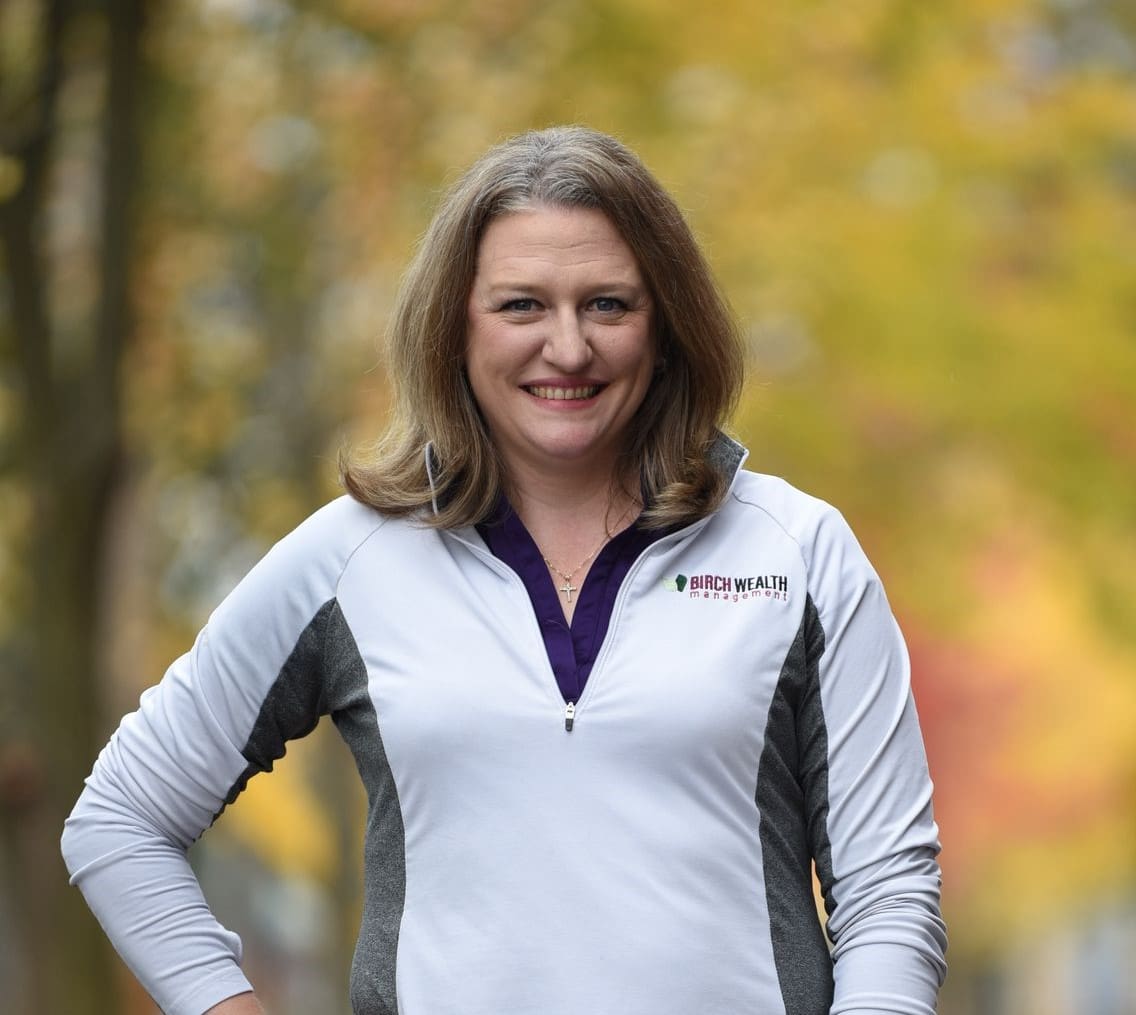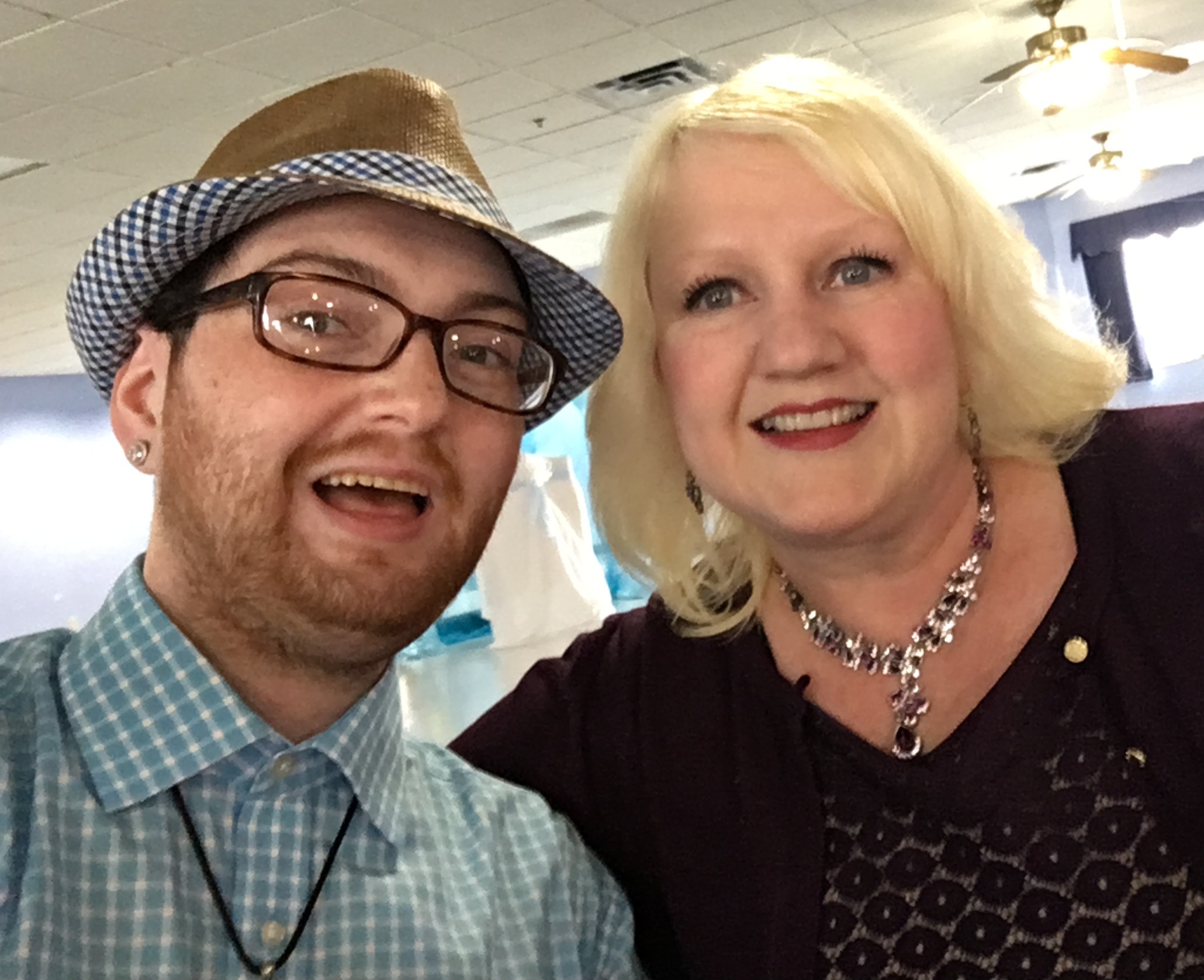By Alyssa Dearborn
If you ever meet Carolyn Kardos, you will immediately notice her teal hair. You also might be able to spot her matching teal Jeep. For Kardos and many other ovarian cancer survivors, teal is more than just a color: it’s a symbol of strength and survival.
“I have teal hair, and I drive a teal Jeep, and I always wear teal. When I’m out and about, many times women will stop me and tell me how much they like my hair, it’s so pretty. And that is my opening,” she said.
Kardos uses the color teal as a way to raise awareness for the disease.
“I will explain to them I have teal hair because I’m an ovarian cancer survivor…I’ll usually be in the middle of Target or T.J. Maxx or a restaurant and we’ll stand there and talk for 15 or 20 minutes,” she said.
In preparation for these conversations, she is always stocked with business cards that she created to further educate the people she encounters.
“It’s got my name, phone number, and email address. And on the back are the symptoms of ovarian cancer and some tips on what to do and myths that people think.”
“I’m not a doctor,” she added, “And always when I’m talking to people let them know that. I only know my experience with ovarian cancer. And so I make sure they know my word is not gospel, but this is what happened to me. What happened to me is what I’m an expert on.”
Kardos was diagnosed with stage 3c ovarian cancer in 2013 while receiving an operation to remove what was first identified as a benign mass. Before the mass was discovered, she was even misdiagnosed with a urinary tract infection.
“I was having pain in my groin area. I had just started taking a spin class so I thought I pulled a muscle or something. It went on for a couple months and it didn’t go away,” she said when asked about her diagnosis. “I went to see [my primary care doctor] and she said I had a UTI, which is strange because I was 60 and I had never ever had a UTI before.”
“I went and got a CT scan done and she calls me the next day and said they found a mass. So then I made an appointment with gynecologic oncologist in Syracuse…and she told me that it was benign and that it was not cancer, but that she would take it out because it was causing me pain.”
What was then supposed to be a half hour surgery turned into Kardos’s cancer diagnosis.
“She came out five and a half hours later and told [my son and husband] that I had stage 3c ovarian cancer and they would be lucky if I was still around in two months.”
Only 2 percent of all women diagnosed with ovarian cancer have the same type that Kardos had. Being a rare form of cancer, Kardos made the choice to receive treatment at a hospital with a research facility in Texas.
“It’s been nine years and I’m still here. So going to Texas was the right thing, because if I stayed in New York, I for sure wouldn’t be around.” she said.
While she was recovering in Texas, her work friends in Central New York wanted to support her on her recovery journey.

“Right at that time, the Hope for Heather 5k was happening,” Kardos said when asked about how she got involved with the organization. “So a bunch of them signed up and went to the 5k and my friend Rina talked to to Frieda, the head of Hope for Heather, and they sent me a basket of goodies…When I came home and started to recover, I went back to work and the next year, I went to the run with my friends. So I met Frieda and pretty much from that moment on, they were my purpose. Especially now that, three years ago, my husband passed away suddenly. I think that if I didn’t have Hope for Heather to fall back on and have a purpose, I would’ve been a real mess.”
Now as a survivor of ovarian cancer, she has become an advocate for other survivors and for those currently facing ovarian cancer. She talks to women’s groups with Frieda and Hope for Heather, meets with representatives in Washington D.C. to try and secure funding, and, of course, works every year at Hope for Heather’s booth at the New York State Fair. Her yearly presence at the fair gives her more opportunities to meet and encourage more women.
“Last year when I was at the fair, I met this woman and her son,” Kardos recalled one of her most memorable encounters, “and they came to the booth. They told me that she had, while she was at the fairgrounds, got a call saying that she was diagnosed with ovarian cancer. And they were just scared. So I talked to them for quite a while and I told them my story, kind of reassured them, and that kind of stuff.”
“Well this year,” she continued, “the first day of the fair, her son comes in to see if I was there. And I said, ‘How’s your mom doing?’ which, inside, I was taking a deep breath saying, ‘please, please, please.’ And he said ‘She’s doing great. She’s clear of the cancer and everything.’ So she came to the fair twice more and she just looked healthy and happy. And that’s what you do this for, is to help these people get through this…That’s the kind of thing that makes my heart feel good.”






You must be logged in to post a comment.